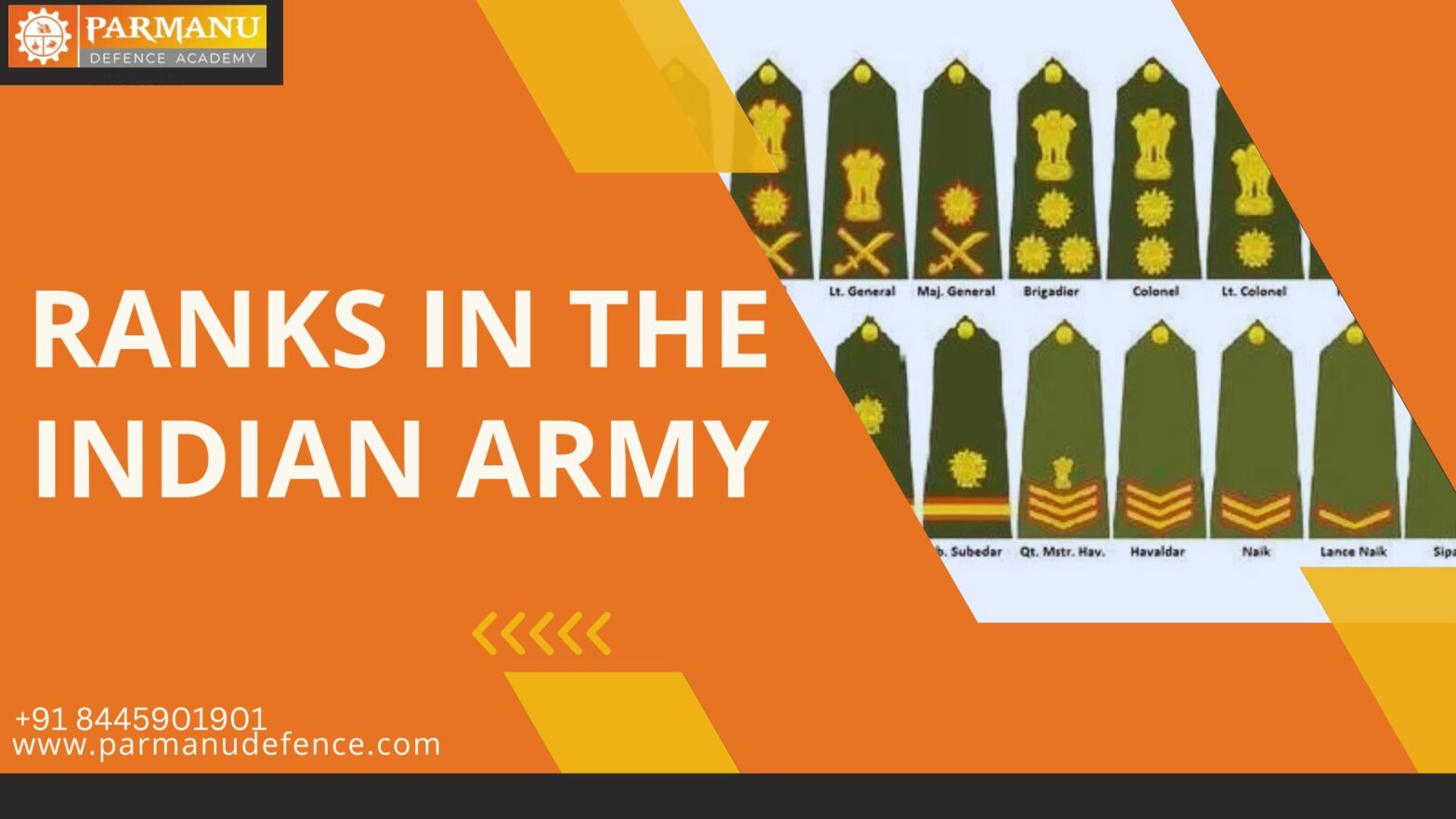
Ranks in the Indian Army– The Indian Army has a clearly defined rank system that comprises commissioned, non-commissioned, and junior commissioned officers. Each rank entails particular duties, responsibilities, and insignia that differentiate individuals within the military hierarchy. These ranks symbolise authority, leadership, and expertise in the Indian Army, establishing the hierarchy and command structure that supports the nation’s defence and security.
Following India’s independence in 1947, the Indian Army experienced substantial changes, including a reorganisation of its rank system. In 1950, a new set of ranks was established to reflect the Indian Army’s status as an independent entity. Let us explore the Ranks in the Indian Army in the coming sections.
Commissioned officers have a responsibility on their shoulders in leading and commanding soldiers. The officer gets promoted to the above rank based on his performance. As the rank increases, the responsibility of the officer also increases. Furthermore, commissioned officers are fully trained in all aspects. This includes specialised skills, tactics, leadership, etc. It is essential to plan and execute operations successfully.
There are different insignia and collar patches for different Armed Forces Officer Ranks. The list below contains a proper pattern Army Hierarchy in the Indian Army. Each rank is described with its Insignia Description and Collar Patch.
| Rank | Insignia Description | Collar Patch |
| Field Marshal | The national emblem is set over a crossed sword and baton, surrounded by a lotus flower wreath. | Crimson and decorated with 5 golden stars. |
| General | The national emblem is set over a 5 pointed star, placed beyond a crossed baton and sabre. | Crimson and embroidered with 4 gold stars. |
| Lieutenant General | The national emblem is positioned beyond a crossed baton and sabre. | Crimson and ornamented collar patches with 3 golden stars. |
| Major General | 5-pointed star positioned beyond a crossed baton and sabre. | Crimson and display 2 golden stars. |
| Brigadier | The national emblem is set above 3 five-pointed stars arranged in a triangular form. | Crimson and feature 1 golden star. |
| Colonel | The national emblem is placed above 2 five-pointed stars. | Crimson and decorated with golden braids. |
| Lieutenant Colonel | The national emblem is placed above a single five-pointed star. | – |
| Major | Only national emblem. | – |
| Captain | 3 five-pointed stars. | – |
| Lieutenant | 2 five-pointed stars. | – |
JCOs play a vital role in making communication between commissioned officers and soldiers. They have expertise in both technical issues and leadership. The list below contains a proper pattern of JCOs in the Army Hierarchy. Each rank is described with its Insignia Description and Collar Patch.
| Rank | Insignia Description |
| Subedar Major | It consists of a gold national emblem with a stripe. |
| Subedar | It has 2 gold stars set in a single line with a stripe. |
| Naik Subedar | This insignia consists of 1 gold star with a stripe. |
Soldiers play a vital role in providing support to officers while conducting operations. They are the backbone of the Indian Army. For basic to infantry support, soldiers support units in every aspect. Ranks of the Army in India for soldiers are:
| Rank | Insignia Description |
| CQMH | There are 3 strips, and the Ashoka Chakra is at the top. |
| Havildar | It has 3 rank chevrons. |
| Naik | It includes 2 rank chevrons. |
| Lance Naik | The insignia has a single rank chevron. |
In the above text, we discussed the Ranking in the Indian Army. Each rank is mentioned properly in the table. From commissioned officers to sepoys, we have covered everything properly. In addition, for the officer rank, one needs to clear officer entries such as NDA, CDS, AFCAT, etc. For JCO, there is a religious exam, and sepoys have to clear the GD bharti to join the Indian Army. For more details, feel free to contact us at 7078552552.
Parmanu Defence © Copyright 2025.All Rights Reserved